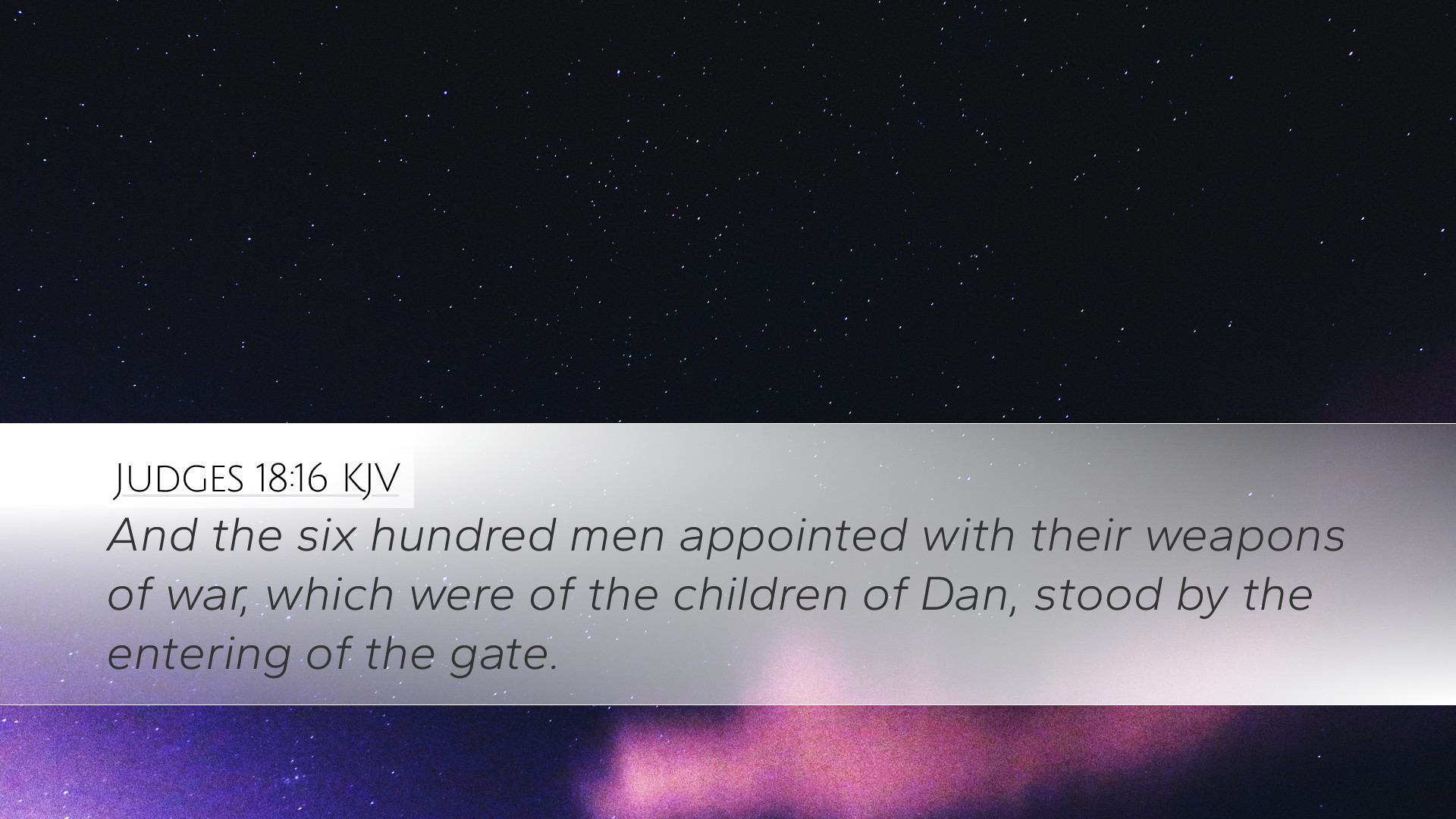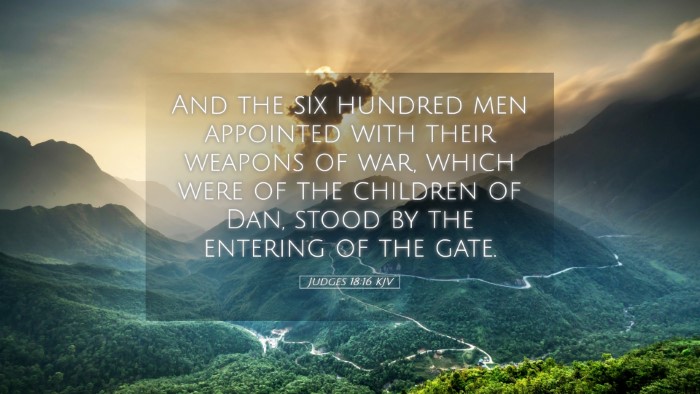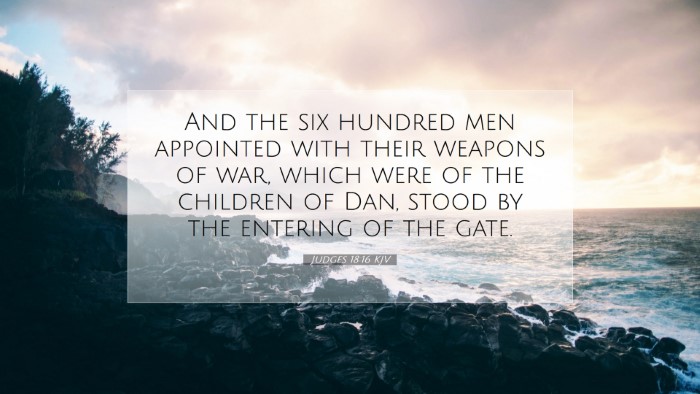Bible Commentary on Judges 18:16
Verse: Judges 18:16 - "And the six hundred men appointed with their weapons of war, which were of the children of Dan, stood by the entering of the gate."
Introduction
The context of Judges 18 centers around the tribe of Dan as they embark on a journey to find an inheritance and settle in a secure region. They encounter the Micah's idolatry, and the verse in focus illustrates a pivotal moment where the armed men of Dan stand ready at the gates, showcasing both their preparation and intention.
Contextual Analysis
Understanding this verse requires a deeper exploration of the surrounding chapters, particularly the social and spiritual climate of Israel during this time. The narrative reveals the fragmentation of tribes and the rise of individualism, often leading to the abandonment of God’s commandments.
The Role of the Tribe of Dan
According to Matthew Henry, the Danites represent a group that highlights the departure from faithfulness to God. Their discontentment with their allocated territory leads them to seek what they believe is a more favorable land.
Militarization and Alarm
Albert Barnes posits that the 600 men mentioned in this verse illustrate a significant military presence which indicates the seriousness of their mission. The standing at the entrance of the gate symbolizes both a literal and metaphorical readiness for confrontation, highlighting the tribal insecurity.
Theological Reflections
This verse prompts deeper theological reflections on the themes of preparedness, divine calling, and moral conduct. Adam Clarke discusses the implications of militarization among God’s people and how it contrasts with the divine instruction for total reliance on His provision.
The Nature of Warfare
The presence of armed men draws attention to the nature of spiritual warfare present in the narrative. The armed forces represent not only physical might but also the spiritual battles that align with faithfulness to God.
Comparative Analysis with Spiritual Warfare
- Preparedness: The Danites' readiness is an allegory for the Christian's call to 'put on the whole armor of God' (Ephesians 6:11-17).
- Divine Security: The equation of military presence with security raises questions about depending on God for safety versus reliance on human strength.
- Identity and Ethos: Their search for a secure inheritance parallels the Christian journey of seeking a spiritual inheritance in Christ.
Cultural Insights
The significance of this verse is heightened when viewed through the lens of ancient Israel's culture. The actions of the Danites reflect societal norms around warfare, inheritance, and communal identity, as noted by Henry in his reflections on tribal autonomy.
Moral Implications
The moral implications of standing with weapons at the gate are manifold. The Danites' approach raises ethical questions regarding violence and conflict resolution within the community of believers. As noted by Barnes, their actions necessitate scrutiny regarding true faithfulness to the Lord’s commands.
Lessons for Modern Believers
- Conflict Resolution: Insights into how believers address disputes and challenges.
- Faith and Works: The importance of aligning one's actions with faith in God’s provision over dependence on human strength.
- God’s Guidance: Seeking divine direction before undertaking significant decisions, akin to the Danites’ flawed quest for land.
Conclusion
Judges 18:16 serves as a microcosm of the larger narrative that addresses themes of discontent, spiritual deviation, and the dangers of relying on one's strength rather than trusting in divine sovereignty. The insights from public domain commentaries enrich our understanding and challenge us to reflect on our own lives and faith journeys. The passage beckons today’s readers—pastors, students, and scholars alike—to critically assess how indigenous principles apply to modern faith practices.


